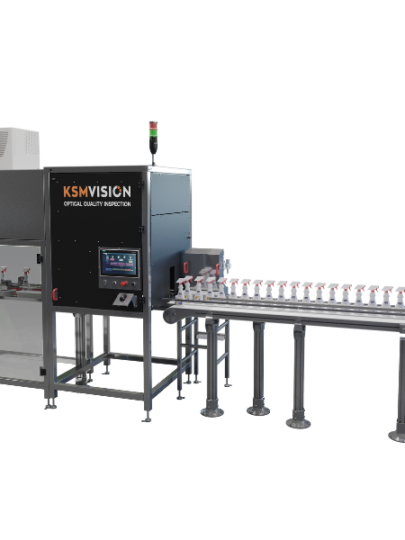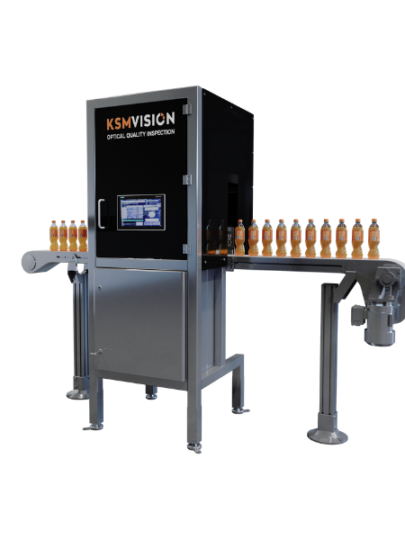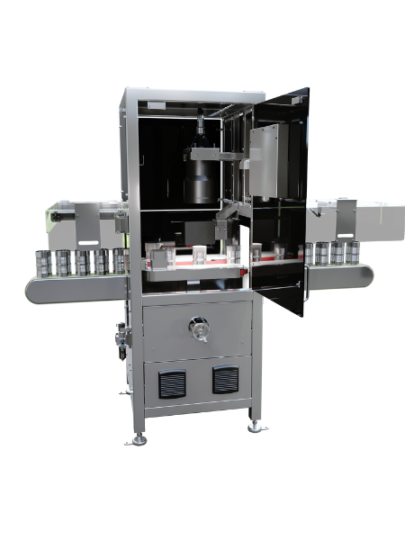Greater efficiency of quality control
for increased competitiveness
of your company in the food industry
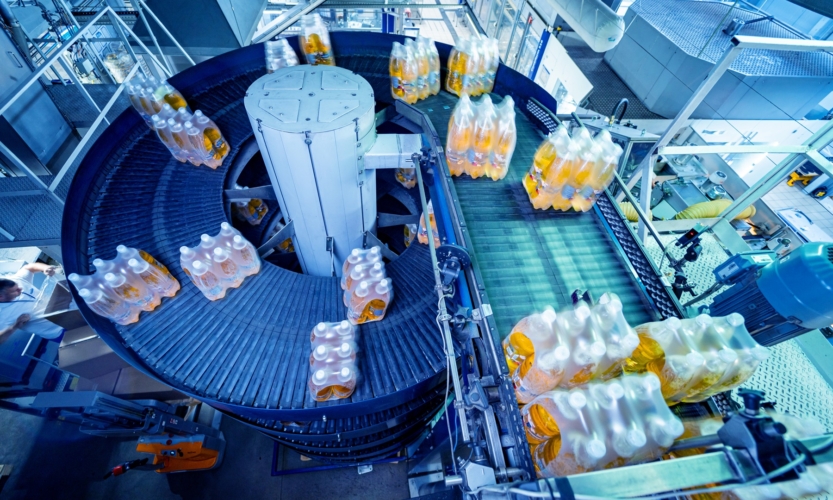
-
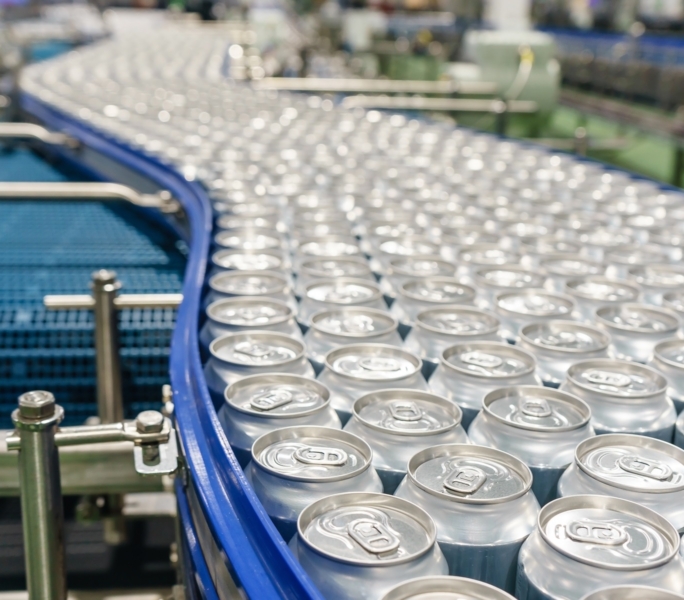
Challenges of the food industry
The food industry is one of the fastest and most dynamically developing sectors of the economy. Food and beverage producers must respond to market needs and legal regulations applicable to the industry on an ongoing basis.
The main challenges of food industry producers:
– quality and safety assurance – supply chain management; attention to production quality and safety; detection of defective products
– regulatory compliance – updating product ingredients, labels and packaging to keep up with changing regulations and recommendations
– competitive advantage – monitoring the market, trends and customer needs; speed of introducing new products and brands
– production optimization – inspection, tracking and intelligent data management; production automation; failure managementOn the one hand, producers from the food sector must develop their offer in order to meet consumer expectations and stay ahead of the competition; on the other: take care of the quality of products, keeping up with the multitude of product and packaging variants.
Ensuring production quality and compliance with the ability to quickly adapt and analyze trends is therefore one of the key challenges facing the food industry.
-
AI-driven quality control systems to solve the challenges of the food industry. Check how the systems from the Inspect 360+ series can support your production processes.
-
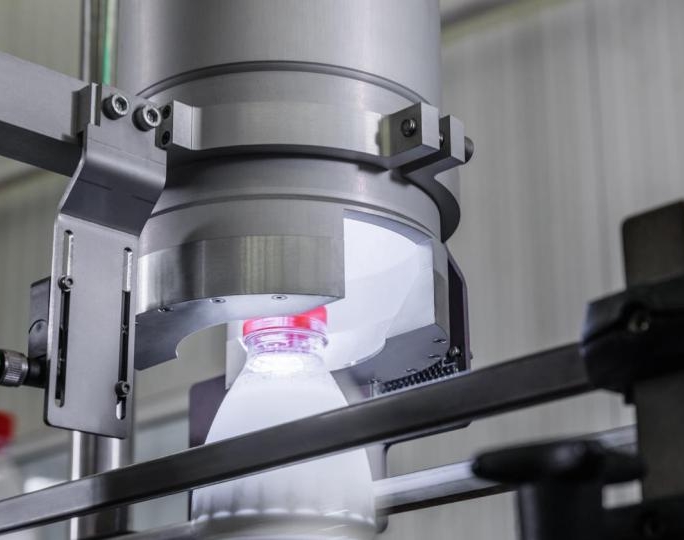
The future of the food industry with AI-driven vision quality control systems - Inspect 360+ series by KSM Vision
Inspect 360+ systems take into account the specificity and complexity of challenges faced by food industry producers:
– based on deep neural networks, Inspect 360+ allows for the detection of defects that were not anticipated at the time of system implementation – given the variability and diversification of cosmetic production, this is an important advantage.
– Inspect 360+ systems ensure quick response to market and production requirements: the ability to quickly and easily adding new reference models and ‘training’ the system on an ongoing basis.
– compactness and compatibility of Inspect 360+ allows integration with the plant’s production lines – small dimensions enable installation on new and existing production lines.
– integration with the plant’s IT systems – thanks to software based on neural networks, KSM Vision systems can be adapted to corporate requirements in terms of the manufacturer’s IT systems: data exchange, management of user rights, reporting. -
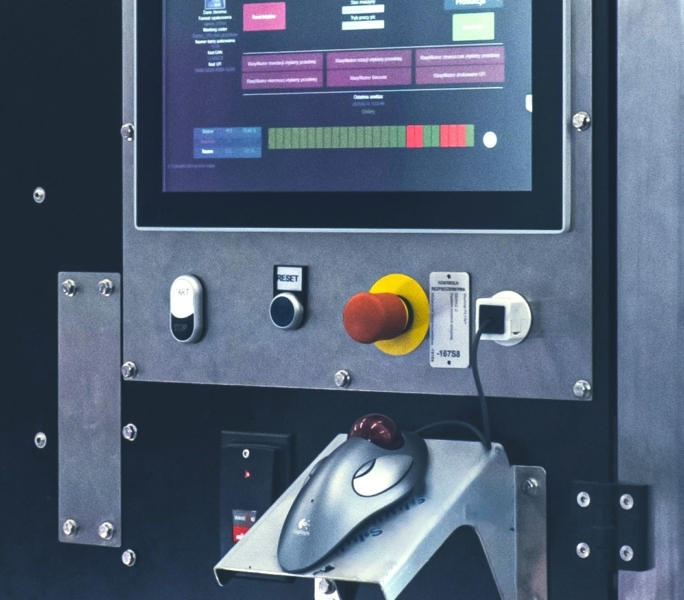
Inspect 360+ series systems - comprehensive quality control at every stage of your production process
Inspect 360+ systems cover the needs of food producers in terms of quality control throughout the entire production process.
Inspect 360+ is a comprehensive vision systems, trained for new products using neural network architecture and integration with the plant’s IT structure.
The Inspect 360+ series offers:
– quality control of packaging (glass and plastic bottles, jars, etc.), labels and closures;
– pouring level detection;
– quality control of canned products (using X-ray radiation): detection of foreign bodies (e.g. metals, glass) and large deformations of the packaging after closing, type of product tested: aluminum cans (beverages, canned goods, freeze-dried products), sachets, meat/fish packed on a tray
– detection of foreign bodies in products with complex geometry and non-uniform absorption of X-ray radiation, such as “instant” dishes (mixes of dry products), vegetable mixtures, dishes in jars, and has functional features enabling automatic adaptation to new or significantly changed products on the production line.
– quality control tests of welds in products such as: pouches, string bags, instant meals, etc.
Machine vision
and artificial intelligence
in the food production
Quick training of the system for new productions – hence high flexibility – and real-time analysis of production data are key elements that food producers should take into account when planning the investment in the automated quality control systems. Such solutions are offered by the automated vision control systems equipped with the artificial intelligence like the Inspect 360+ series offered by KSM Vision.
The advantages of machine vision based on KSM Vision neural networks include:
- Data analysis: Artificial intelligence can analyze huge amounts of food production data, such as sensor data, product images and laboratory data. This allows you to detect subtle patterns and anomalies in product quality.
- Defect detection: Advanced algorithms can identify product defects, such as contamination, deformation or other undesirable features, which allows them to be rejected at the production stage.
- Quality prediction: Artificial intelligence can predict product quality based on historical data, making quality control more proactive and allowing for adjustments to the production process.
- Process optimization: Data analysis can help identify points where production can be optimized to improve product quality and reduce waste.
- Quick response to problems: Thanks to continuous data analysis, artificial intelligence-based systems can quickly respond to quality problems, which helps avoid problems spreading on a larger scale and in more advanced stages of production (e.g. entire batches).
- High flexibility for changes: The ability to quickly and easily add new reference models and “train” the system on an ongoing basis.
Conclusions from data analysis thanks to artificial intelligence allow food producers to make more informed decisions about product quality, minimize the risk of defective batches and increase the efficiency of quality control. This is a key argument for investing in automated quality control systems based on AI.

